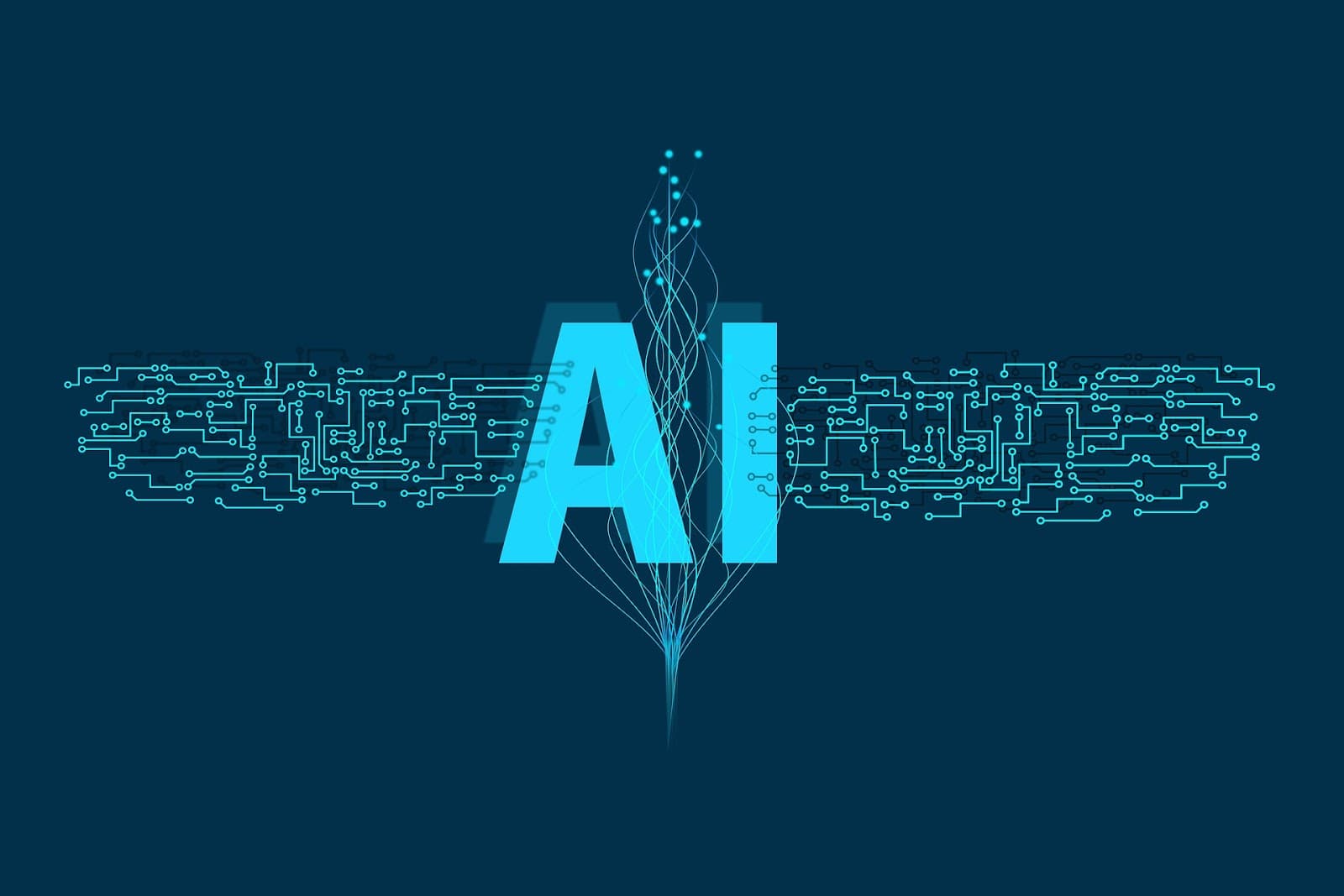
How AI and ML Influence Our Daily Lives
Machine learning (ML), a branch of artificial intelligence (AI), has woven itself into the fabric of our daily lives, transforming our interaction with technology and molding numerous sectors.
From voice-activated helpers like Siri and Alexa to personalized suggestions on media platforms, ML is reshaping our day-to-day experience.
What is the influence of machine learning?
Machine learning, an aspect of AI, has made substantial strides in various facets of society, constantly reshaping our lifestyles, work habits, and social interactions. Here are some key areas where ML has made its mark:
- Streamlining and Efficiency: ML can take over repetitive and mundane tasks, allowing humans to focus on more intricate and inventive tasks. This can boost productivity and efficiency in areas such as manufacturing, customer service, and data analytics;
- Enhanced User Experience: ML-backed technologies like chatbots and virtual assistants enhance user interactions by offering immediate support, customized recommendations, and effective problem-solving. ML algorithms also facilitate personalized content and targeted ads, enhancing the overall user experience;
- Financial Services: ML algorithms can dissect enormous quantities of financial data, recognize patterns, and make forecasts to aid in fraud detection, risk assessment, and investment strategies. ML-backed chatbots can also provide customers with personalized advice.
While ML offers abundant benefits, it’s crucial to deploy it responsibly, addressing potential challenges and ensuring transparency, fairness, and a human-centric approach.
How does machine learning influence our daily lives?
Machine learning can touch our daily lives in numerous ways. Here are some key areas where ML is leaving a significant impression:
- Personalized Assistance: ML-backed voice assistants like Siri, Alexa, and Google Assistant have become essential parts of our lives. They can execute tasks such as setting reminders, answering queries, playing music, and controlling smart home devices. These virtual assistants employ natural language processing and machine learning to comprehend and react to human instructions, making our tech interactions more intuitive and fluid;
- Smart Home Automation: ML enables us to automate and synchronize various home devices. Smart thermostats, lighting systems, and security cameras can be managed and optimized by ML algorithms. These systems can learn our preferences and adjust settings accordingly, enhancing energy efficiency, convenience, and safety;
- Online Suggestions: ML algorithms analyze copious amounts of data regarding our preferences, browsing habits, and purchase history to provide personalized suggestions. Online platforms like Amazon, Netflix, and Spotify employ ML to propose products, movies, TV shows, and music that align with our tastes and interests. This personalized approach enriches the user experience and helps us explore new content;
- Healthcare and Medical Diagnostics: ML has the capacity to revolutionize healthcare by improving diagnosis, treatment, and patient care. Machine learning algorithms can dissect medical data, like medical histories, medical images, and scientific papers, to identify patterns and make accurate diagnoses. ML-powered medical devices can remotely monitor patients, detect early signs, and provide real-time feedback, facilitating proactive health management;
- Transportation and Autonomous Vehicles: Self-driving cars and other autonomous vehicles rely on ML to perceive and interpret their surroundings, enabling them to navigate safely on the roads. ML algorithms analyze data from cameras, radar, and lidar to detect objects, predict traffic, and make real-time decisions. Autonomous vehicles can reduce accidents, improve traffic flow, and boost transportation efficiency.
Uncovering the Widespread Influence of AI on Daily Living
Intelligent machines are increasingly becoming a part of our everyday lives, reshaping the way we interact with technology and molding various industries. Voice-controlled assistants like Siri and Alexa or personalized suggestions on digital platforms, machine learning is reinventing our daily experiences.

What Role Does Artificial Lay?
Machine learning (ML) leaves a significant imprint on several facets of society, continuing to shape the way we live, work and communicate.
Here are some key areas influenced by ML:
- Streamlining and Productivity: ML can automate mundane and repetitive tasks, allowing individuals to concentrate on more complex and innovative tasks. This can result in heightened productivity and efficiency in sectors like manufacturing, customer service, and data analysis;
- Enhancing User Experiences: ML-driven technologies such as chatbots and virtual assistants enhance user interactions by offering instant support, tailored suggestions, and effective problem-solving. ML algorithms also enable customized content and targeted advertising, thereby enhancing user experiences;
- Financial Services: ML algorithms can process massive amounts of financial data, identify patterns, and make predictions to help detect fraud, assess risk, and manage investment strategies. ML-powered chatbots also offer customers personalized solutions.
Though ML brings many advantages, it’s crucial to ensure responsible implementation, address potential issues and ensure transparency, fairness, and a focus on human-centric design.
The Relevance of Artificial Intelligence in Modern Life
AI holds a significant role in modern life due to the following reasons:
- Boosting Automation and Efficiency: AI makes it possible to automate repetitive and routine tasks, providing room for human resources to concentrate on more intricate and innovative tasks. AI-based algorithms can swiftly and accurately process enormous data quantities, leading to heightened efficiency and productivity across various sectors;
- Enhancing Decision-Making: AI platforms can scrutinize and interpret complex datasets, delivering critical insights that aid decision-making processes. Through AI, businesses can make decisions grounded in data, resulting in superior outcomes, improved operational efficiency, and a competitive edge;
- Tailoring Experiences: AI-powered technologies are exemplary at tailoring experiences, and understanding individual preferences, behaviors, and requirements. From personalizing recommendations on online shopping platforms to customizing educational content, the technology enriches user experiences by making products and services more relevant and engaging;
- Transforming Healthcare and Medical Diagnostics: AI holds the potential to overhaul healthcare by enhancing patient diagnosis, treatment, and care. AI algorithms can analyze copious amounts of medical data, identify patterns, and assist medical professionals in making precise diagnoses. AI-fueled medical devices can monitor patients remotely and provide personalized medical solutions, leading to improved patient outcomes and proactive healthcare management;
- Fueling Research and Development: The technology is crucial in research and development, speeding up discoveries and breakthroughs. AI algorithms can examine large datasets, identify trends, and contribute to drug discovery, genomics, and other complex scientific areas. This accelerates innovation and promotes scientific advancement;
- Elevating User Experience: AI technologies like natural language processing, computer vision, and machine learning are enhancing user experiences across various fields. Voice assistants, chatbots, and AI-integrated virtual reality make interactions with technology more intuitive, seamless, and immersive;
- Addressing Societal Challenges: The technology has the potential to tackle critical societal issues, including climate change, poverty, and healthcare affordability. AI-powered systems can assist in optimizing energy usage, developing sustainable solutions, and improving resource allocation in sectors such as agriculture and transportation;
- Bolstering Safety and Security: AI significantly enhances security in a plethora of areas. AI-integrated surveillance systems can detect and respond to potential threats more effectively. Cybersecurity applications utilize AI algorithms to detect and prevent cyberattacks, safeguarding sensitive data and infrastructure;
- Promoting Economic Growth and Job Creation: The widespread adoption of AI is projected to stimulate economic growth and job creation. AI-driven automation could result in new jobs, particularly in areas related to AI development, data analytics, and AI systems management;
- Catalyzing Future Innovation: AI acts as a catalyst for future technological advancements. As an evolving field, it continues to challenge boundaries and lay the foundation for emerging technologies such as robotics, autonomous vehicles, and intelligent urban landscapes.
The significance of AI in today’s life rests in its ability to facilitate automation, enhance decision-making, personalize experiences, revolutionize healthcare, stimulate research and development, improve user experiences, address societal challenges, assure safety, stimulate economic growth, and set the groundwork for future innovation.
Implementing the technology enables us to unlock unique opportunities and resolve intricate problems, leading to a superior and more efficient world.
How is Machine Learning Apparent in Everyday Life?
Machine Learning has become an integral part of our daily lives, molding various societal aspects. Here are some instances of ML applications you may stumble upon regularly:
| Domain | Impact of AI | Examples/Applications |
|---|---|---|
| Healthcare | Enhanced diagnostics and treatment. AI-powered medical imaging for accurate diagnosis | Chatbots providing 24/7 medical advice |
| Personalized treatment plans | Transportation, Improved road safety and efficiency, Self-driving cars and autonomous vehicles | AI-based traffic management systems |
| Ride-sharing platforms with AI-powered optimization | Education, Personalized learning experiences, Adaptive learning platforms with tailored content | AI-powered virtual tutors and Chatbots |
| Automated grading and feedback systems | Entertainment, Personalized recommendations, and content | AI-generated music, artwork, and stories |
| VR and AR experiences enhanced by AI | Personal Assistance, Voice assistants for tasks, and information | Siri, Alexa, and Google Assistant |
| Smart home automation through AI integration | Decision-Making, Data analysis for informed decision-making | Business analytics and predictive modeling |
| AI-powered recommendation systems | Personalization, Customized experiences based on preferences | Personalized e-commerce recommendations |
| AI-powered fashion and style suggestions | Safety and Security, Enhanced surveillance and threat detection, AI-powered video surveillance and analytics | AI-driven cybersecurity applications |
These examples show how ML is interweaving into different aspects of our lives, enhancing convenience, efficiency, and customization in many sectors. This list is by no means exhaustive, and the influence of ML continues to develop as technology progresses.
Wrapping Up
Machine Learning is deeply rooted in almost every aspect of our day-to-day lives, redefining industries and revolutionizing how we live, work, and entertain ourselves. From healthcare to transportation and from education to entertainment, the influence of AI and ML is profound and far-reaching. As we continue to embrace AI technology, it is critical to ensure its responsive design and implementation, taking ethical considerations into account and minimizing potential risks.
By harnessing AI’s potential, we can unveil unparalleled opportunities for innovation, efficiency, and enhanced quality of life. The journey with AI continues, and as it evolves, we should strive to leverage its power for humanity’s benefit, mitigating potential hurdles along the way.
Despite the numerous benefits AI brings, it also raises critical ethical and societal concerns. Privacy issues related to the collection and usage of personal data by AI and ML systems are of utmost importance. Biases in ML algorithms that lead to unfair decisions and perpetuate social inequalities must be fought. Furthermore, the potential displacement of jobs as a result of automation presents economic challenges that call for proactive strategies to ensure a smooth transition.





